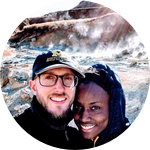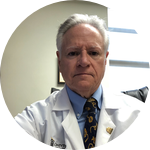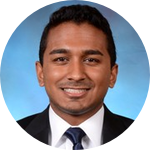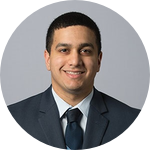About This Project
We hypothesize that the subject matter and emotional context of tweets about medical topics have evolved over time. Our research aims to further characterize these topics. Our secondary aim is to study the readability of patient-specific education materials available through public microblogging social media networks and mobile applications. We hypothesize that these materials are written at high reading levels precluding understanding by most Americans.
Ask the Scientists
Join The DiscussionWhat is the context of this research?
In the digital age, the Internet is a common tool used by the public for communication of information. In the context of clinical care, the Internet is a platform through which physicians, patients, and other healthcare stakeholders can engage in virtual communication. Medical information is a frequently searched topic on the Internet, with studies showing that 84% of people in America utilize the Internet and with 80% of those searching for medical information. Additionally, social media has transformed health services research by increasing circulation of information among the general public. Moreover, with almost 68% percent of adults owning a smartphone, mobile application development for the purpose of medical care has soared in popularity.
What is the significance of this project?
Unfortunately, digital health educational materials may be misinterpreted by patients and negatively affect their health behaviors and outcomes. Patients with poor health literacy receive fewer preventive services, utilize more expensive medical care, and are more likely to be hospitalized. Thus, providing this population of patients with more readable and understandable health education resources may positively impact clinical outcomes. Additionally, our analyses on Twitter will provide an opportunity to better understand patients' and providers' thoughts on healthcare and help to characterize current conversation.
What are the goals of the project?
The primary aim of our research group is to evaluate the content of healthcare communication through mobile applications and social media across all medical specialties with the goal of improving digital healthcare communication to better patient care. We hypothesize that the subject matter and emotional context of tweets about medical topics have evolved over time. Our secondary aim is to concurrently study the readability of patient-specific education materials available through mobile applications. We hypothesize that these materials are written at high reading levels precluding understanding by most Americans.
Budget
Pilot Study Funding: Our group is seeking $3000 to fund a pilot study on healthcare communication on Twitter and analysis of mobile applications. Funding will go toward purchase of hashtag data from Symplur as described in Aim 1 and purchase of the top 100 mobile applications available for download from the Apple App Store and Google Play Store for 5 medical diseases for readability analysis and categorization as described in Aim 2 and 3. The remainder of the funds will go toward publication fees for abstract and journal submissions. The authors are grateful for any financial support and will acknowledge the provider(s) of any pilot funding in all publications.
Long Term Funding & Sustainability of Research: Within the next two years we will seek additional private and public grants (i.e. NIH, institutional funding) to insure the long-term sustainability of our research group’s work.
Endorsed by
 Project Timeline
Project Timeline
After successfully funding our project, we immediately plan to purchase access to 15 Twitter healthcare hashtags begin analyzing the data to produce abstracts to submit to National Conferences. Next, our team will draft manuscripts for publication for 5 of the most promising hashtags and submit them for publication in medical journals. We will also study mobile applications on 5 medical diseases and submit abstracts and manuscripts for publication by July 2021.
May 15, 2019
Project Launched
Apr 01, 2020
Complete data analysis for 15 Twitter studies
Jul 01, 2020
Complete data analysis for 5 mobile app studies
Jul 15, 2020
Submit 5 mobile app study abstracts and 15 Twitter study abstracts to national conferences in order to share our results with the scientific community
Sep 01, 2020
Share preliminary results with all backers
Meet the Team
Affiliates
Affiliates
Team Bio
This is a team collaboration headed by a resident physician (Arpan) and third-year medical student (Varun). We both met in undergrad at the University of Pittsburgh and share a mutual interest in health literacy and patient education, as well as the effect of the Internet, social media, and mobile applications on medicine. We collaborate with physicians and physician-scientists in various medical specialties and are excited to continue making meaningful contributions in the literature.
Varun Ayyaswami
I am a 4th year medical student with a clinical interest in pursuing a residency in internal medicine. As a physician I hope to work with medically underserved populations that have difficulty interacting with the healthcare system due to limited health literacy. I first became interested in working with this population of patients while serving in the National Health Corps in Philadelphia and seeing first hand the difficulties these patients faced in seeking adequate healthcare.
My main research interests include digital healthcare communication, health literacy, patient education, and medical malpractice. I have collaborated with several physicians in different specialties with a particular focus on cardiology. I also have an interest in the intersection of the humanities and medicine and have published several articles in clinical journals in this area. Finally, I have a long standing interest in regenerative medicine and completed an undergraduate honors thesis in this area.
Feel free to chat with me on Twitter or Linkedin.
Arpan V. Prabhu, M.D.
I am a Resident Physician in Radiation Oncology at the UAMS Winthrop P. Rockefeller Cancer Institute. I studied economics in undergrad and graduated from the University of Pittsburgh School of Medicine in 2018 with the Bert and Sally O’Malley Award for Outstanding Clinical Research.
My research activities have focused on health literacy, patient education, and social media. To date, I've published over 60 peer-reviewed articles in journals including the JAMA consortium and the International Journal of Radiation Oncology*Biology*Physics, and have presented over 45 oral and poster presentations at regional and national conferences.
I am also the co-editor of the book The Evolution of Health Literacy: Empowering Patients Through Improved Education, published by Nova Science Publishers.
Additional Information
PROJECT HYPOTHESIS AND SPECIFIC AIMS:
Hypothesis: We hypothesize that the subject matter and emotional context of tweets about medical topics have evolved over time. We also hypothesize that the readability of patient-specific health education materials available online through mobile applications are written well above the nationally recommended reading levels established by the AMA and NIH.
Specific Aim 1: Analyze healthcare communication on the public microblogging social media network Twitter across different medical specialties, diseases, and/or treatments to identify the digital behavior of healthcare stakeholders with specific emphasis on patients’ and healthcare providers’ experiences.
Specific Aim 2: Analyze the quality of healthcare-related mobile applications on the Apple App Store and Google Play Store across all medical specialties, diseases, and/or treatments.
Specific Aim 3: Analyze the readability of healthcare-related mobile applications on the Apple App Store and Google Play Store across all medical specialties, diseases, and/or treatments.
Project Backers
- 30Backers
- 136%Funded
- $4,087Total Donations
- $136.23Average Donation




